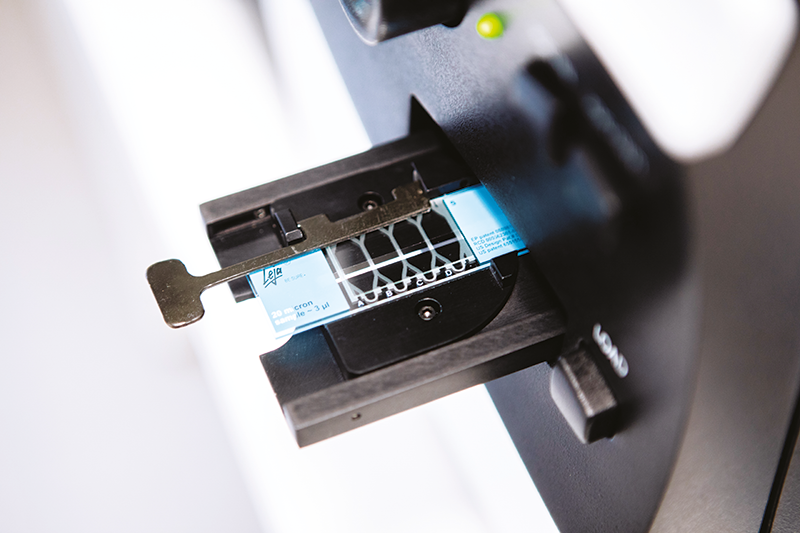
03.10.2017
a. Spermatozoa have the reflex of swimming against oncoming current in their surrounding fluid, which is referred to as rheotaxis
b. A variation in the fluidic characteristics will result in a variation in the quantitative and qualitative distribution of spermatozoa in the surface area that is analyzed.
c. Since it is very difficult to standardize the liquid and cover slip placing process, the analysis of sperm concentration and motility will depend on the potentially significant variations in placing techniques.
IMAGE
Figure 1: Example of two different ways of
placing the cover slip and
the impact on the distribution of spermatozoa.
Using a pre-calibrated slide avoids problems resulting from random placing of cover slips.
2. Clarification: in order to calculate concentration levels, the results from a CASA (Computer Assisted Sperm Analyser) system are based on the following mathematical formula: C= n/V
To determine n, the CASA system counts the IMAGE
number of cells in the fields the technician asked it to analyze.
To determine V, the CASA system is based on the following formula: Volume = width x length x depth. The width and length are determined when calibrating the CASA unit, using a micrometric slide.
To calculate the depth value, the technician must enter the height of the chamber of the pre-calibrated slide (usually 20 µm – for Leja slides, the average value for a lot is specified on their inspection certificate).
For the slide/cover slip combo technique, the depth is approximate and highly dependent on the sample volume placed, the viscosity of the liquid, the cover slip placing method and the time elapsing between preparation of the slide and the actual analysis.

Given that the values measured with the CASA system are essential for calculating the number of doses to be produced, it is crucial to use a pre-calibrated cover slip for CASA analyses. This is the reason why IMV takes the greatest care when manufacturing Leja cover slips, thereby ensuring optimum quality and a precise assessment of the number of doses that are going to be produced.
